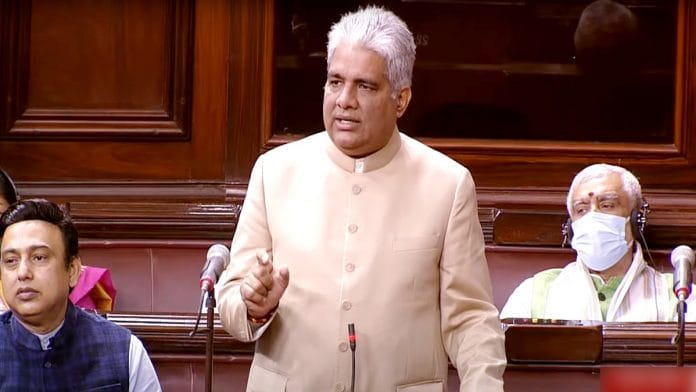New Delhi: Bhupendra Yadav, the Union minister of Environment, Forests and Climate Change, has blamed the Kerala government for allowing illegal mining and unchecked human habitation, identified as possible reasons for the devastating landslides in Wayanad that killed over 350 people.
Speaking to the media Monday, Yadav said that over the past decade, the Centre had not cleared any major development projects in the region except the Kozhikode-Wayanad tunnel road project, which was also at the “in-principal clearance” stage.
Government documents, however, showed that Kerala had sanctioned four mining projects, mostly stone quarrying, over the past three years. Apart from this, the state also approved five other projects in the past decade, including highway constructions.
“Illegal mining, unregulated human habitation, and activities have significantly damaged the ecologically sensitive region. The state government has allowed such activities to go unchecked,” Yadav said.
Landslides last month, triggered by heavy rainfall in Kerala’s Wayanad district, claimed at least 350 lives and injured hundreds, while many are still feared missing.
A day after entire hillsides collapsed on 30 July, the Centre issued the sixth draft notification for declaring 56,800 kilometres of the Western Ghats, including 13 villages affected by landslides in Wayanad district, an ecologically sensitive area (EZA). This was done 13 years after the first round of recommendations for such a demarcation was made by ecologist Madhav Gadgil in 2011.
The Centre’s notification has proposed declaring 9,993.7 square kilometres in Kerala — which includes the 13 villages in two talukas – 449 sq km in Gujarat, 17,340 sq km in Maharashtra, 1,461 sq km in Goa, 20,668 sq km in Karnataka, and 6,914 sq km in Tamil Nadu, ecologically sensitive areas.
The government has invited suggestions and objections to the notification within 60 days.
“Since the (Madhav) Gadgil and the K. Kasturirangan committee reports, we also set up an expert panel in 2022 under the leadership of the former director general of forests, Sanjay Kumar. The panel is in constant touch with the states, and we are hoping to issue the final notification soon,” the minister said.
The draft notification has proposed a “ban on activities including mining and quarrying, with existing mines to be phased out within five years from the date of the final notification or on the expiry of the current mining lease, whichever is earlier”.
Development activities, except repair and renovations of existing structure, are also prohibited.
(Edited by Tikli Basu)
Also read: Kerala bars scientists from assessing landslide-hit Wayanad, sharing findings with media






